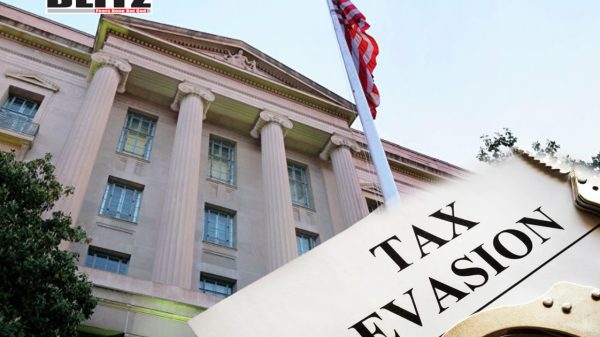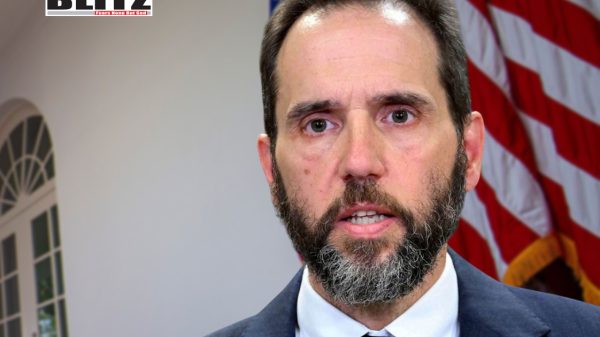US Court approves IRS investigation into offshore tax evasion linked to Trident Trust
- Update Time : Saturday, January 18, 2025

In a significant escalation of its efforts to combat tax evasion, the US Internal Revenue Service (IRS) has launched a sweeping investigation targeting clients of Trident Trust Group, a prominent offshore services provider. The investigation, authorized by a federal court on December 23, 2024, involves a “John Doe” summons demanding records from Trident Trust’s Manhattan-based affiliate, Nevis Services Limited, and seeks to uncover potentially concealed assets and income by US taxpayers.
The investigation spans nearly a decade, from 2014 to 2023, focusing on Trident Trust’s global operations across notorious tax havens. The IRS’s probe highlights the agency’s intensified crackdown on abusive offshore financial practices.
Founded in the 1980s in the British Virgin Islands, Trident Trust Group has grown to become one of the largest offshore financial service providers. The firm offers an array of services, including the creation of shell companies, trusts, and other structures designed to shield assets from public scrutiny and government taxation. Its client base reportedly includes high-profile individuals such as former Ecuadorian President Guillermo Lasso, Chinese billionaire Jack Ma, and Israeli mining magnate Dan Gertler. Trident Trust was also prominently featured in the 2021 Pandora Papers, an investigation by the International Consortium of Investigative Journalists (ICIJ), which shed light on the murky world of offshore finance.
The Pandora Papers revealed that Trident Trust’s clients used its services to shuffle large sums of money across the globe, often obscuring ownership and bypassing regulatory oversight. Notable examples include shell companies connected to Russian billionaire Suleiman Kerimov, whose network was used to transfer over $300 million. Another involved a US taxpayer allegedly hiding Swiss bank assets through financial structures facilitated by Trident Trust. These revelations have provided the IRS with a wealth of evidence to justify its investigation.
The court-approved “John Doe” summons allows the IRS to demand information about unidentified taxpayers suspected of violating US tax laws. This legal tool is rarely used and requires the agency to meet a high evidentiary threshold, demonstrating substantial proof of potential wrongdoing. The IRS plans to use the summons to collect records from Nevis Services Limited, detailing customer names, financial transactions, and communication with Trident Trust’s affiliates worldwide.
“This summons is a major step in ensuring compliance with US tax laws,” said IRS Commissioner Danny Werfel in a Justice Department statement. “US taxpayers and their facilitators who hide offshore income and assets are on notice.”
The summons will also compel major international banks such as HSBC, BNY Mellon, Citi, and Deutsche Bank to provide transaction data related to Trident Trust’s operations. Courier services, including FedEx, UPS, and DHL, are required to supply records of mail forwarding and retention services allegedly used to conceal client activities.
The investigation underscores the global reach of Trident Trust, which operates in at least 28 jurisdictions, including South Dakota and Georgia, now considered emerging hotspots for financial secrecy. These domestic locations have attracted ultra-wealthy individuals seeking to exploit US trust laws for privacy and tax benefits.
According to the IRS, Trident Trust entities have helped US taxpayers establish foreign corporations, trusts, and bank accounts to evade detection by authorities. In one case, Trident Trust allegedly assisted a taxpayer in setting up a network of offshore entities that concealed millions of dollars in a Swiss bank account. Such activities, the IRS argues, constitute deliberate violations of US tax laws.
The agency’s filing also accuses Trident Trust of enabling schemes involving nominee ownership, where false names are listed as company owners. An example from the Pandora Papers detailed how a Swiss tattoo artist was falsely listed as the owner of a company tied to Suleiman Kerimov, further illustrating the opaque practices facilitated by the firm.
The IRS’s aggressive action against Trident Trust signals a broader commitment to dismantling abusive offshore tax schemes. While offshore financial services are not inherently illegal, their frequent misuse to conceal income and evade taxes undermines the integrity of the US tax system.
Former IRS agents have lauded the agency’s efforts. David Utzke, who led a high-profile 2016 case involving cryptocurrency exchange Coinbase, emphasized the rigorous standards courts impose before granting John Doe summonses. “You can’t use it for fishing. You need substantial evidence showing systemic violations,” Utzke noted.
Eulonda Lea, a former IRS supervisory special agent, highlighted the scale of the current investigation. “The sheer number of entities covered suggests a wide-ranging and significant action by the IRS,” she remarked. The agency’s focus on financial intermediaries, including banks and courier services, reflects a sophisticated strategy to trace the flow of hidden assets.
Trident Trust, while maintaining that it adheres to regulatory compliance, faces mounting scrutiny. In a statement to ICIJ, the firm asserted its commitment to reporting suspicious activity to authorities. “Each of our businesses is regulated in the jurisdiction in which it operates,” the statement read. However, the revelations from the Pandora Papers and subsequent investigations have cast doubt on these assurances.
The offshore finance industry has long operated in the shadows, enabling wealthy individuals and corporations to exploit legal loopholes. The IRS investigation into Trident Trust may serve as a cautionary tale, deterring other firms from facilitating similar schemes. It also highlights the critical role of international cooperation in addressing tax evasion, as the flow of illicit funds often spans multiple jurisdictions.
The IRS’s probe into Trident Trust represents one of its most ambitious efforts to date in combating offshore tax abuse. By leveraging extensive evidence and deploying John Doe summonses, the agency aims to hold both facilitators and their clients accountable. The outcome of this investigation could set a precedent for how governments address the challenges posed by the offshore finance industry.
As the IRS continues to uncover the full extent of Trident Trust’s activities, the case serves as a stark reminder of the lengths some individuals and entities will go to avoid taxation. It also underscores the ongoing need for transparency, robust enforcement, and international collaboration to ensure a fair and equitable tax system.
The investigation’s results will likely resonate far beyond US borders, potentially reshaping the global conversation around financial secrecy and accountability. For Trident Trust and its clients, the era of operating in the shadows may be coming to an end.












Leave a Reply